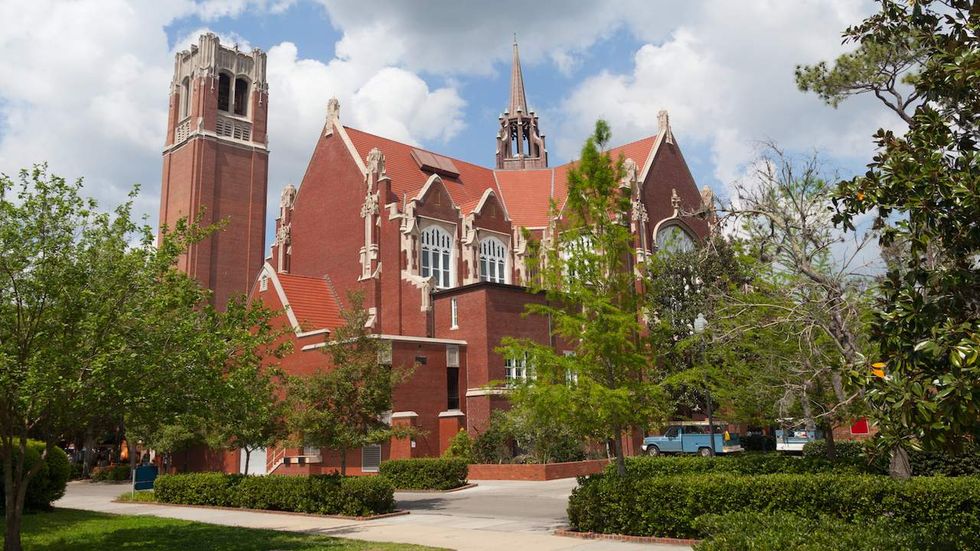
Students at the University of Florida are now required to assess the “emotional risk” of a potential campus event before being the occasion is approved. (Getty Images)

University of Florida students requesting to host an event on campus must first predict the “emotional risk” of the occasion before it will be approved.
The question is posed to students when they apply for a campus event permit, which is required to be approved by the university’s administrators before an event may take place, according to the Young America’s Foundation. The question about “emotional risk” falls under a series of questions covering the “potential risk associated” with the event in question.
Students are prompted to “select all possibilities of emotional risk that may apply” from these three options: “Sensitive subject matter,” “reaction of participants,” and “potential controversy.”
Whatever answer the student gives is then used by the school’s administration to determine how to appropriately staff the event.
“Each event type and risk factor are given a point value and tallied to identify if the event will need a [Student Activities and Involvement] staff presence,” the university website states. “In the event SAI staff is needed, a note will be put in the notes section of the event permit.”
Spencer Brown, a spokesman for the YAF, called the survey question “absurd.”
“The infantilization of students, grown adults, by institutions of so-called ‘higher learning’ is a phenomenon doing significant harm to students,” Brown wrote. “Rather than preparing them for the real world, this leftist babying of college students does a disservice to the next generation.”
And Emily Jashinsky, who previously served as a spokeswoman for the YAF but now writes for the Washington Examiner, suggested University of Florida students skip over the question altogether because “it’s easy to imagine this process is designed to justify greater university control over lectures and events with the potential to irritate progressive campus activists.”
This is just the latest in a long series of headlines to come from college campuses. The war between conservative ideas and safe liberal spaces has been dominating the conversation in recent years.
In fact, last week, Wisconsin lawmakers approved a bill to discipline students in the University of Wisconsin system who continually disrupt campus speakers. The bill is now on its way to the state Senate.
Should the proposal be OK’d by the assembly and signed into law by Gov. Scott Walker, a Republican, students who repeatedly interrupt speaker could be suspended or even expelled.
“To me, a university should be precisely the spot where you have an open and free dialogue about all different positions,” Walker said in April. “But the minute you shut down a speaker, no matter whether they are liberal or conservative or somewhere in between, I just think that’s wrong.”
The proposal comes several months after conservative commentator Ben Shapiro was shouted down by a cluster of progressive University of Wisconsin students who chanted “shame!” and “safety!” while he was delivering his speech in November of last year.
Some students even left their seats and tried to crowd in front of him, hoping to shut down the well-known speaker.